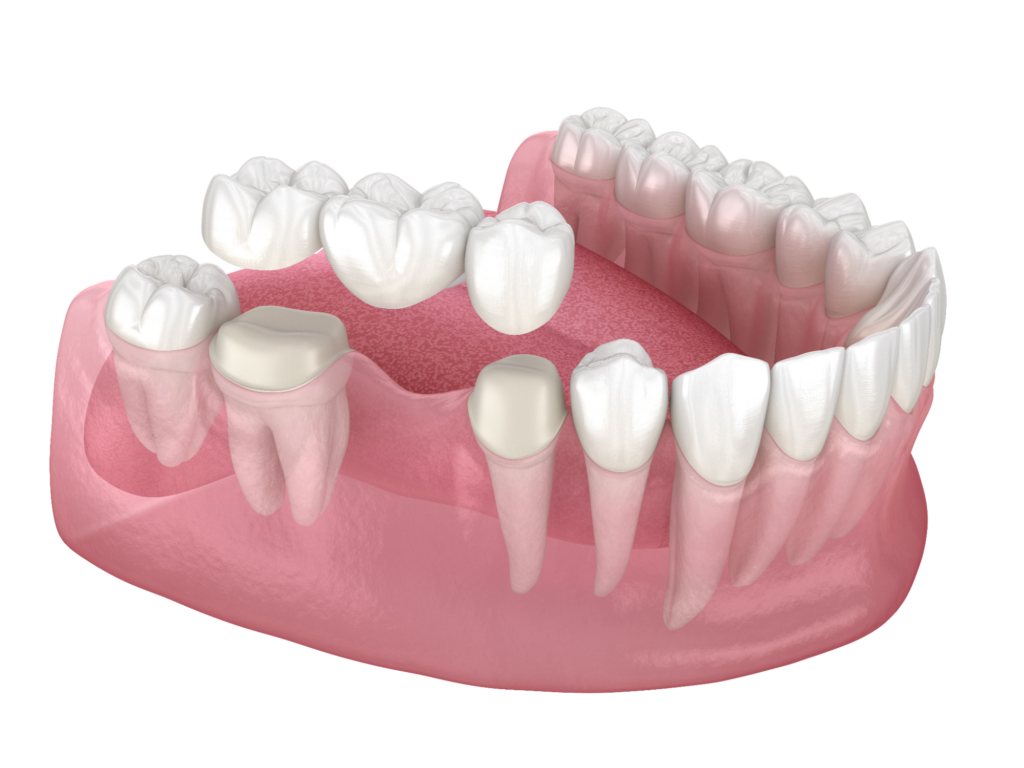While most people know how important it is to brush twice daily to maintain optimal oral health, best practices for flossing are discussed much less frequently. For many, it is an afterthought that only comes to mind when food is stuck in their teeth or when a dental visit is approaching. For others, it seems like a tedious chore or a less important aspect of oral care. But flossing is just as crucial as regular brushing. In fact, flossing is more effective at removing plaque from in-between teeth and along the gumline than brushing, which only targets the surface areas of your teeth.
So, how often should you floss to avoid tartar build-up and gum disease?
Why Flossing is Important
Flossing is one method of cleaning between your teeth. Other interdental cleaning methods do exist, the most common one is interdental brushes. Cleaning between your teeth is only one aspect of good oral hygiene, but it is one of the most important ones. When flossing regularly, along with brushing twice a day, plaque and food particles are removed from around the gumline.
The underlying principle is that it removes harmful bacteria and food particles that brushing alone can not remove. Brushing tends to focus on the front, back, and biting surfaces of the teeth. Although this is also important, it isn’t enough to remove all the food and plaque build-up that fills small gaps between teeth, the sides of teeth, or crevices along the gum line.
Without flossing, plaque accumulates and eventually turns into tartar, which a dentist must remove. Additionally, if food particles and plaque are not removed, cavities may form between the teeth and your gums will become inflamed. The problem is that often the gums won’t hurt when they are inflamed, so many people think they don’t have a problem. Unfortunately, this simply isn’t true. No pain doesn’t necessarily mean that there is no problem – that’s why you need to visit the dentist regularly.
The failure to clean these small spaces can also lead to gum disease and other chronic health problems associated with poor oral hygiene. How regularly and correctly you floss will determine its effectiveness.
How Often Should You Floss?
One of the most common questions patients ask their dentist is “How often should I floss?”. Some people believe you should floss at least once a week, while others think you should do it every time you brush. If you are concerned about your oral health, flossing at least once a day is recommended by dental professionals and the Australian Dental Association.
Should You Floss Before or After Brushing Your Teeth?
Whether one should floss before or after brushing their teeth is another hot topic of debate. What matters most is that you use proper flossing techniques and floss adequately. Some studies have indicated that flossing before brushing can be beneficial because it helps loosen food particles and plaque, which can then be brushed away. If you prefer to floss after brushing, this technique is equally beneficial to the health of your gums and teeth.
At the end of the day, it’s a personal preference as to whether you floss before or after brushing. What is important is that you’re flossing regularly.
Flossing Tips and Technique
To get the best results from flossing, we recommend the following technique.
When flossing, use around 45cm of floss and wrap it between the thumbs and forefingers tightly.. Once you slide the floss between your teeth, you need to vertically rub the side surfaces of your teeth up and down. Remember, the plaque / bacteria sit on the side surfaces of your teeth and moving the floss up and down in the gap only may remove food debris, but not the plaque. Be sure to be gentle with the floss and avoid being rough or yanking hard when removing it.
There is an immense variety of dental flosses. Some are flavoured, some are coated in wax, and some come with plastic handles. All of these are effective, so be sure to experiment with different types to find the floss that you like best.
Bleeding of the gums will happen if you do not floss regularly. This is because there is plaque left behind and this leads to an inflammatory reaction. After you establish a regular flossing regime, this bleeding will subside. If it does not after several weeks, be sure to speak to a dental professional, as there may be an underlying issue that requires treatment.
If you find traditional flossing difficult, consider using an alternative method such as an interdental brush. An interdental brush is like a bottle brush in a Christmas tree shape. In fact, interdental brushes are more effective than floss if there is enough space between your teeth to pass them through the gap. Most people will need a lesson by their dentist in order to become familiar with how to use them properly.
Brushing and flossing should not be substituted in place of professional dental cleanings, which should be part of your regular dental care plan.
Should you have any more questions regarding brushing or flossing or using an interdental brush, reach out to us today to schedule an appointment.


